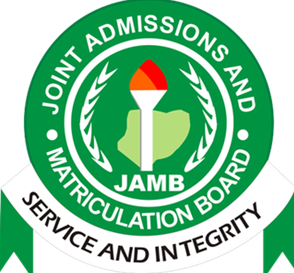We would like to shed light on the field of Computer and Economics in Nigeria’s universities. This article aims to provide an in-depth understanding of what it means to study Computing and Economics, the time required to complete the program, career prospects in Nigeria, preparation for the Jamb exam, and frequently asked questions regarding Jamb subject combination for Computer and Economics.
What it means to study Computing and Economics in Nigeria University
Studying Computing and Economics in a Nigerian university offers students a unique blend of knowledge from two distinct fields. The program bridges the gap between technology and economics, equipping graduates with a diverse skill set that is highly valued in the job market.
Combining computer science principles with economic theories, students delve into subjects like programming, statistics, microeconomics, macroeconomics, and econometrics. This interdisciplinary approach provides a comprehensive understanding of how technology and economics intersect, allowing students to become future leaders in various industries.
SEE ALSO:
- Jamb subject combination For Applied Mathematics With Statistics
- Jamb subject combination For Applied Geophysics (Updated)
- JAMB Subject Combination For Bioinformatics (Updated)
How many years does it take to study Computing and Economics?
The duration to complete a Bachelor’s degree in Computer and Economics in Nigeria varies from one university to another. Typically, the program spans four years, consisting of eight semesters. During this time, students cover a wide range of core and elective courses necessary to develop a strong foundation in both computer science and economics.
It is important to note that the duration may differ based on factors such as university regulations, program structure, and any additional prerequisites. Therefore, it is advisable to consult the specific university’s curriculum or academic advisor to determine the precise duration for completion.
Career Opportunities for Computer and Economics Graduates in Nigeria
Computer and Economics graduates possess a unique skill set that opens doors to diverse career opportunities in Nigeria. Here are some industries and positions where these graduates can excel:
- Financial Institutions: Computer and Economics graduates can work in banks, insurance companies, and financial institutions, analyzing economic data, developing financial models, and implementing technology-driven solutions for financial operations.
- Government and Public Sector: Graduates can join the government sector and work in departments such as finance, planning, and economic development, contributing to policy-making, economic research, and data analysis.
- Consulting Firms: Computer and Economics graduates can offer their expertise as consultants, providing strategic advice to businesses on leveraging technology and economic principles to improve operational efficiency and profitability.
- Technology Sector: With their solid understanding of both computer science and economics, graduates can work in technology companies, focusing on areas such as data analysis, market research, and product development.
- Research Institutes and Think Tanks: Graduates can contribute to economic research, policy analysis, and development in research institutions and think tanks. They can explore the impact of technology on the economy and propose innovative solutions.
Preparing for the Jamb Exam as a Prospective Computer and Economics Student
To pursue a degree in Computer and Economics, prospective students are required to sit for the Joint Admissions and Matriculation Board (Jamb) exam in Nigeria. Here are some tips to prepare effectively:
- Understand the Jamb Syllabus: Familiarize yourself with the UTME syllabus for Computer and Economics, which outlines the topics and subtopics you need to study. Focus on key areas such as computer science concepts, economic theories, and mathematics.
- Practice Past Questions: Solve previous Jamb exam questions related to Computer and Economics to gain familiarity with the exam format and identify your strengths and weaknesses. This will help you allocate time effectively during the exam.
- Create a Study Plan: Develop a study schedule that allows for consistent and structured preparation. Divide topics into manageable sections, allocate sufficient time for each, and include time for revision and practice tests.
- Seek Guidance and Resources: Utilize textbooks, online resources, and guidance from teachers or mentors to enhance your understanding of core concepts. Join study groups or online forums to discuss and clarify doubts.
- Time Management and Mock Exams: Practice time management during your study sessions and simulate exam conditions by taking mock exams. This will help you improve your speed, accuracy, and overall performance.
Jamb Subject Combination for Computer and Economics
- Computer Science
- Mathematics
- English Language (compulsory)
- Economics
Frequently Asked Questions
What subjects are required for Jamb subject combination for Computer and Economics?
The Jamb subject combination for Computer and Economics typically includes Mathematics, Economics, and any other Social Science subject (such as Geography, Government, or Commerce).
Can I substitute Economics with another subject?
In most cases, Economics is a mandatory subject for Jamb subject combination in Computer and Economics. Substituting it may vary depending on specific university requirements, so it is crucial to check the official guidelines of the university you wish to apply to.
Can I secure admission into the Computer and Economics program without Literature in English as a subject?
Yes, Literature in English is not a prerequisite for the Computer and Economics program. The subjects required are Mathematics, Economics, and another Social Science subject.
Conclusion
Studying Computer and Economics in a Nigerian university offers a unique opportunity to gain expertise in two dynamic fields. The program equips graduates with a diverse skill set, making them highly valued in various industries, including finance, technology, and government.
Prospective students must adequately prepare for the Jamb exam by understanding the syllabus, practicing past questions, creating a study plan, seeking guidance, and managing time effectively. The Jamb subject combination for Computer and Economics typically includes Mathematics, Economics, and another Social Science subject.
Embrace the multi-faceted world of Computer and Economics and embark on a rewarding educational journey that will open doors to exciting career prospects in Nigeria.




